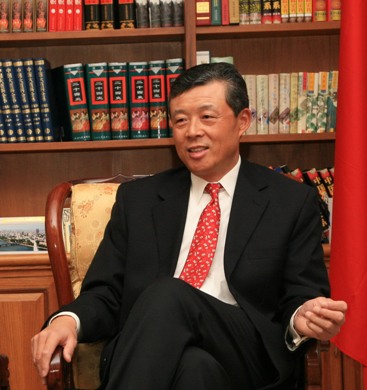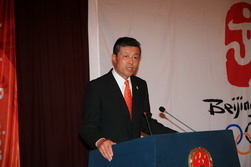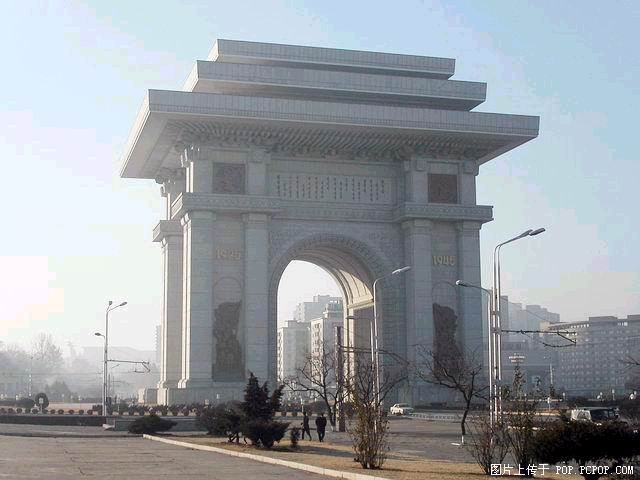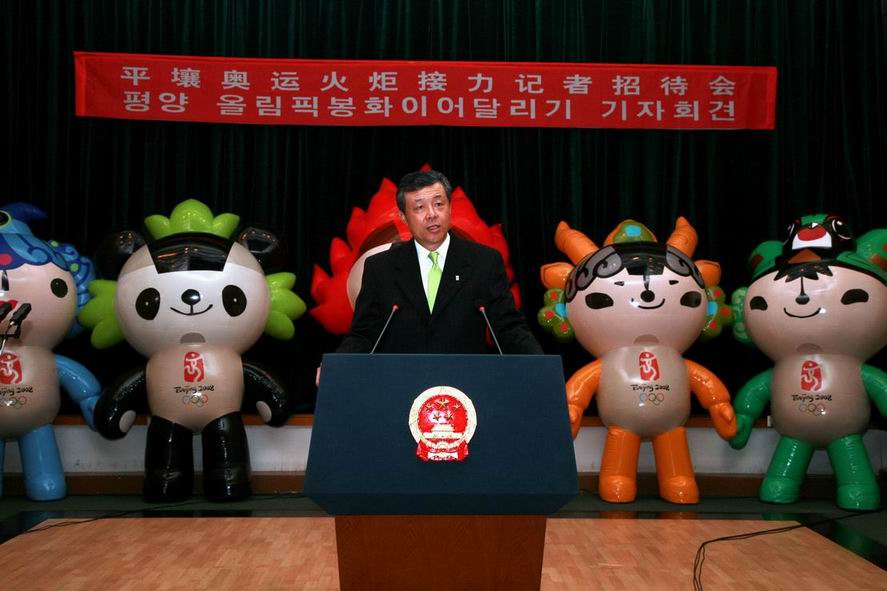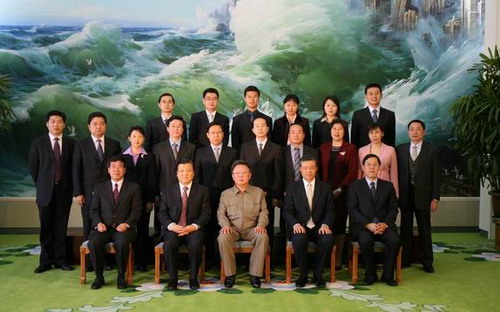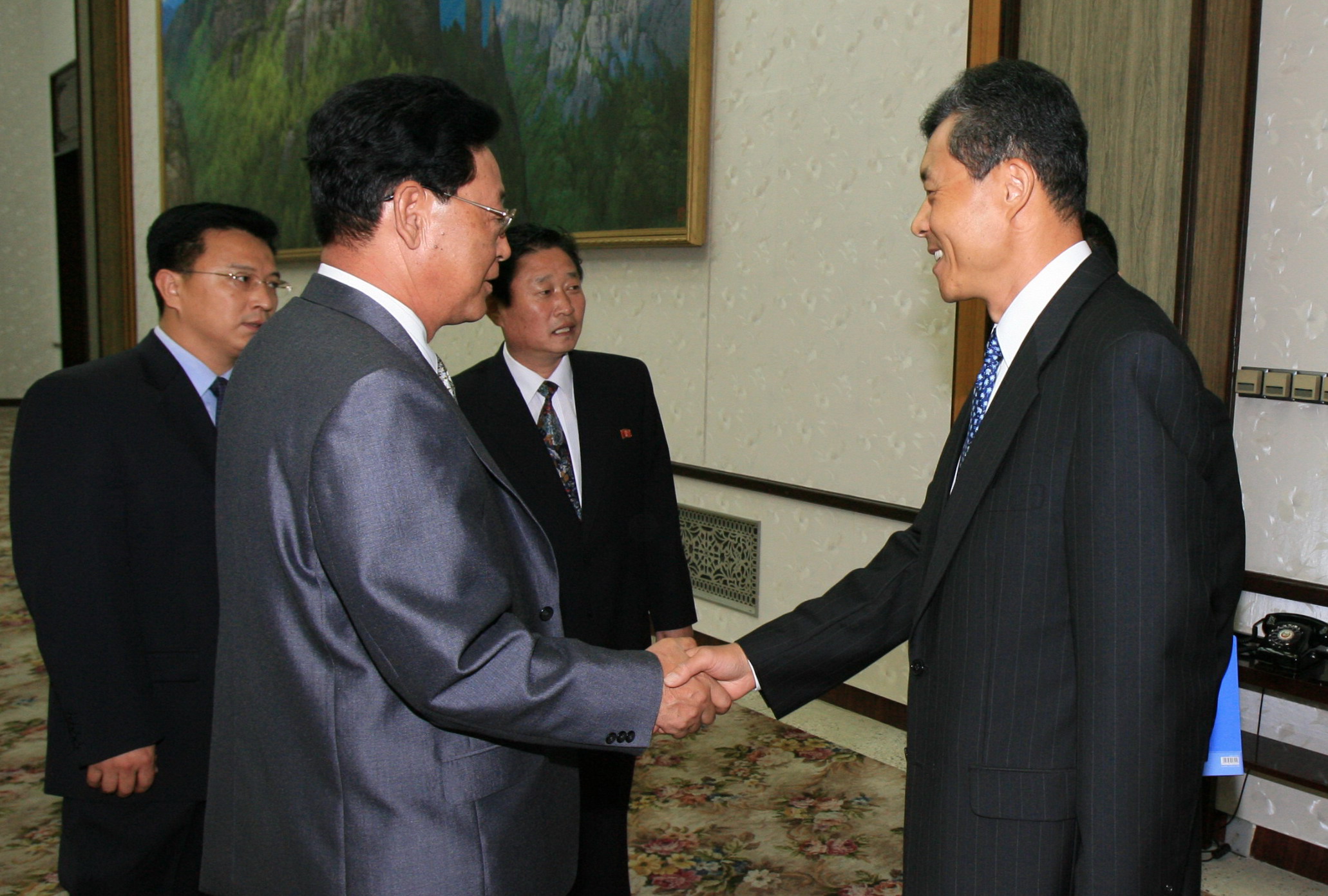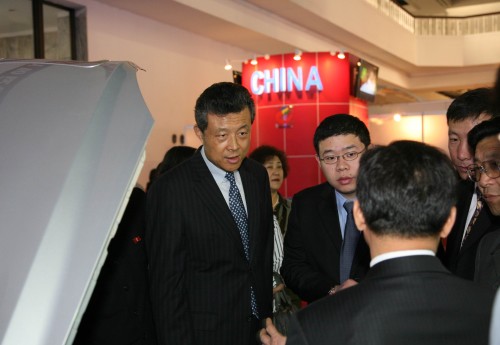Ambassador Liu Xiaoming
At the Ceremony Conferring the Medal of the Dean of the Fletcher School
September 10, 2007, Beijing
President Bacow,
Dean Bosworth,
Fellow Alumni and Alumnae
Ladies and Gentlemen:
It is a great honor and privilege for me to participate in the conferment dinner and ceremony that has brought all of us here tonight. I want first to thank Tufts University and the Fletcher School for awarding me the "Fletcher Dean's Medal." While being immensely encouraged and honored by this award, I feel the hard work that lead to this award has only just begun. I cherish this honor, and I see it as an important reminder of and a driving force in future duty. My thanks also go to President Bacow and Dean Bosworth for giving me this rare opportunity to meet with so many of my fellow Fletcher alumni and alumnae.
This reunion tonight brought back many memories of the youthful time I spent on the beautiful campus of the Fletcher School 25 years ago when I was among the first few groups of young Chinese diplomats enrolled in the Fletcher School. My Fletcher years left me with not only unforgettable memories but invaluable knowledge and expertise that have benefited me tremendously up to this very day.
As the first graduate-only school of international affairs in the United States, the Fletcher School has always maintained the finest academic traditions and a faculty second to none. The Fletcher has, over the years, provided the best and most comprehensive training for diplomats from all around the world. The breadth of Fletcher's reach into the diplomatic community at all levels makes the Fletcher unique. Her strength comes not only from her textbooks and classes but from her dynamic diversity. Throughout the years as I have traveled and served as a diplomat around the world, Fletcher alumni and alumnae have been wherever I went. In Cairo, I presented my credentials to President Mubarak on the same day as another Fletcher graduate, U.S. Ambassador David Welch. The most recent and surprising encounter was in the DPRK when Governor Richardson of New Mexico led a bipartisan delegation to Pyongyang earlier this year. The Governor and I have known each other since he served as U.S. Ambassador to the U.N. We were both very pleased with this unscheduled Fletcher reunion at such a remote corner of the world. The Governor opened his remarks at a reception by saying: "Ambassador Liu and I went to the same school." Yes, we are very proud of this same school, the Fletcher School!
This year marks the 75th Diamond Jubilee celebration of the Fletcher School. Seventy-five years ago, Mr. Austin Barclay Fletcher, the founding father of the Fletcher School, dreamed of a school that would "provide practical service in a disordered world". He envisioned "a school to prepare men for the diplomatic service". Seventy-five years later, he must be happy with his dream coming true. I want to extend my warmest congratulations to the superb faculties of the Fletcher--past and present-that have, over the decades, made the Fletcher School what it has been and continues to be: the unchallenged cradle of diplomacy. My best wishes and those of every Fletcher graduate go out for the even greater success of our School in the next 75 years.
The world has changed tremendously in the past 75 years. I want to share with you tonight how I see the changes in this part of the world.
In late 1993, President Jiang Zemin of China went to Seattle for the first APEC Summit. I was in his entourage. In his meeting with President Bill Clinton, President Jiang brought up a topic: "What kind of world should we take into the 21st century? " I was honored to be present at that historic meeting, seeing and hearing the leaders of our two countries discussing a question that needs to be not only faced but answered. Time flies. Fourteen years have passed and we are well into the first decade of the new millennium. We may take some comfort in the progress that mankind has made and is making at a pace never seen before. Economic globalization is fast unfolding. Science and technology are being upgraded rapidly, and world productivity is increasing at a remarkable rate. But peace and economic development, the two paramount themes of our time, have not yet been fully addressed or resolved. People in many countries are still being denied the basic rights of subsistence and security. International terrorists, ethnic separatists and religious extremists remain rampant in certain regions. Cross-border problems such as environmental pollution, transnational crimes and fatal contagious diseases are demanding solutions. All these more recent developments have made the issue raised by President Jiang Zemin not only relevant today but even more pressing.
In late 2005 at the summit meeting commemorating the 60th anniversary of the founding of the United Nations, Chinese President Hu Jintao put forward an initiative-that international communities make concerted efforts to build a harmonious world with lasting peace and common prosperity. Since then, this initiative has become one of the centerpieces of Chinese foreign policy.
To build towards a harmonious world, we should, first, uphold multilateralism for common security. A new concept of security entailing mutual trust, mutual benefit, equality and cooperation has emerged and should be embraced. A fair and effective collective security mechanism should be established to prevent wars and conflicts.
Second, we need to develop mutually beneficial methods of cooperation to achieve common prosperity.
Third, we should maintain the diversity and pluralism of our civilization with a view towards building a harmonious and all-inclusive world.
A harmonious world can never be realized without the building of harmonious regions. Northeast Asia is an example of this point. Today, Northeast Asia is clearly an area of crucial significance to the peace, security and development of the Asia-Pacific region and, ultimately, the world at large. Geographically, several global powers find their homelands in this region. Whether they can work alongside each other will have a significant impact on the evolution of our global society. Economically, the region is one of the most dynamic engines of growth in the world economy. The prosperity and economic cooperation within the region is increasingly related to and affects the healthy development of the world economy. It has also been a region burdened by international hot spots for a long time. The intricate nuclear issue arising on the Korean Peninsula has had a great impact on regional security and the international nonproliferation system.
It has become the common task of all the countries in the region, including China and the United States, to build towards a harmonious Northeast Asia. Politically, all countries in the region should respect each other and pursue compatibility while preserving diversity. Militarily, the countries of this region should build mutual trust and jointly maintain security. Economically, they should seek mutual cooperation and common development. Culturally, they should respect and learn from each other. To build such a harmonious Northeast Asia, we need the vision and resolve to address both current problems and long-term challenges. What are these problems and challenges?
First, the Cold War specter lingers. For more than half a century, the peace of the Korean Peninsula has been delicately kept only by an armistice accord. The demilitarized zone along the 38ºparallel has the highest concentration of conventional military forces and the highest incidence of security alarms in the world. An accident or a miscalculation could lead to a catastrophe from which nobody would gain, a calamity that could sweep away decades of the prosperity of the region over night.
Second, the nuclear issue on the Peninsula remains a sword of Damocles. There remains a long way to go on the road of denuclearization. Being a region having great potential for spawning an arms race, Northeast Asia puts to the test our will and ways to prevent a possible arms race and proliferation of WMD.
Third, the lack of strategic trust among countries weakens the bases for long-term regional cooperation. In addition to the different domestic situations and political systems of the countries of this region, historical feuds and current disputes also lead to mutual distrust among Northeast Asian countries. Historical disputes over problems going back to WWII, as well as disagreements regarding national territory and maritime rights, are seemingly intractable. Cold War thinking and extreme nationalism still haunt the region. The relations between the DPRK and the United States, as well as between the DPRK and Japan, are far from being normalized.
Fourth, the development of a multilateral security mechanism lags far behind other regions. Compared to Southeast Asia, South Asia and some other sub-regions, Northeast Asia is the home of a greater number of major powers, has more complicated combinations of interests, and seems more likely to generate more compellingly hot issues. This region, however, has yet to develop any regional and multinational arrangement that can effectively address a series of security concerns. This absence weakens the sense of security and mutual trust among the countries of this region, notably enhancing the probability of regional crises.
Fifth, economic integration of the region is still at a very low level. In spite of the presence of major economic powers and mature bilateral economic and trade arrangements, economic cooperation at the regional level has never achieved substantial progress due to political and security factors. This has not only hampered economic cooperation in the region, but also has lead to further economic imbalance among these countries which, in turn, has had a negative impact on regional political and security cooperation.
After painting the grim side of the picture, there is ultimately no reason to be pessimistic about the future of Northeast Asia. While the challenges are tough and real, we also benefit from an historic opportunity-the best since the end of WWII--to achieve lasting peace and durable prosperity in Northeast Asia.
First, there is now a consensus, and it is also a policy priority, for countries in the region to work together to achieve regional peace and security. As globalization and Asia-Pacific economic revitalization develop, Northeast Asian countries are also becoming increasingly interdependent. They realize that it is in their common interest to develop a new relationship that is constructive, cooperative and mutually beneficial. For years, Northeast Asian countries have been working very hard to strengthen their consultations and coordination in political, economic and security fields as well as on many other fronts. That effort has effectively enhanced regional peace and stability.
Second, with the Six-party Talks having made important progress, the nuclear issue of the Peninsula is brought back onto a sound and steady track. Since the launch of the Six-party Talks in 2003, there has been steadfast progress in addressing the nuclear issue through diplomatic efforts by all parties concerned. The September 19th Joint Agreement and February 13th Joint Document are milestones that marked the beginning of the complex process of denuclearization. These breakthroughs have not only proven the vitality of the Six-party Talks as an effective mechanism to deal with the nuclear issue of the Peninsula, but they have also shown that dialogue and consultations are the correct and viable approach to addressing and resolving international disputes.
Third, efforts to push forward a Peninsula peace process and to build a Northeast Asian security mechanism are getting more and more vibrant. The frequent recurrences of the nuclear issue and other chronic security problems have made the regional countries realize that it is vital and urgent to establish an effective multilateral mechanism. Regional countries' call for replacing the Armistice Accord with a peace treaty on the Peninsula and for addressing common security concerns with multilateral arrangements have set the stage for even greater progress on these issues. Many creative proposals have been put forward, and the Six-party Talks have become an important platform for exploring ideas and proposals for the establishment of regional mechanisms for security cooperation in Northeast Asia.
Fourth, openness, exchanges and cooperation are replacing suspicion, seclusion and confrontation as the mainstream feature of bilateral relations in the region. Today, Northeast Asia is in the process of another round of historical flux of great changes and major adjustments. The constructive and cooperative relationship between China and the U.S. has permitted and encouraged unprecedented headways in many areas. China and Japan are also building a new strategic relationship of mutual benefit. The process of normalization of DPRK-U.S. and DPRK-Japan relations is already underway, and the two Koreas have made tangible progress in improving their relations.
Fifth, aspirations for economic cooperation are getting higher among regional countries. Inter-regional trade has increased rapidly in recent years. Opportunities for regional economic cooperation have never been as great.
Ladies and Gentlemen,
China-U.S. cooperation in Asia and especially in Northeast Asia is an important part of the constructive and cooperative relationship between the two countries. We share common interests in realizing denuclearization of the Korean Peninsula, maintaining regional peace and stability, and promoting economic development and cooperation in the region. It makes great sense for our two countries to work together to build a harmonious Northeast Asia. Doing so will help to consolidate our cooperation on regional security issues, especially the Peninsula nuclear issue. It will also help to deepen our mutual understanding of each other's foreign policy thinking and to build up strategic trust. It will contribute to our coordination on many other important international issues, so as to enrich the strategic content of China-U.S. relations and promote the healthy and steady development of our overall bilateral relationship.
In order to achieve these goals, we need
-- To increase dialogue and improve communications. The two countries should use multiple channels, such as high-level visits, Strategic Dialogue, and Six-party Talks, to maintain close and regular communications on current and long-term issues in Northeast Asia, so as to deepen our understanding of each other's stances and to increase the transparency of strategic intentions. At the same time, China and the United States need to have more frequent and candid talks with other countries about the region's future in order to maximize consensus while minimizing differences.
-- To consolidate and strengthen our cooperation on the Peninsula nuclear issue. We should steadily push forward the Six-party Talks so as to make sure that the denuclearization process continues to show meaningful progress. At the same time, we should take a comprehensive approach in addressing the legitimate concerns of the DPRK for security and economic development. We should also be vigilant to address quickly and effectively the possibility of a nuclear arms race in the region, striving to prevent that from happening.
-- To push forward the normalization process. China supports the improvement of relations between the U.S. and the DPRK as well as between the DPRK and Japan. We believe this is conducive to the denuclearization process and the lasting peace of the whole region. We hope the U.S. and the DPRK will stay engaged in dialogue and other types of contact. We also hope to see the two countries have their relations normalized sooner than later.
--To advance the peace process of the Korean Peninsula and to establish a mechanism for cooperation in the area of security in Northeast Asia. The DPRK and the ROK have made important progress in improving their relations. China and the United States should help to ensure that this will be an ongoing process, without interruption. We should also be actively participating in the Working Group on Northeast Asian Peace and Security Mechanism that has been established within the framework of the Six-party Talks, and work together with other parties for building a regional security mechanism.
--To promote regional economic cooperation. Both China and the United States have tremendous economic interests in the region. To promote regional cooperation will not only benefit our bilateral trade and economic ties but also help to shape a peaceful, stable and prosperous Northeast Asia.
--To increase academic exchanges between China and the United States. The academics and think tanks of the two countries have been playing an unique role in improving mutual understanding. It is of particular importance for both countries to strengthen academic studies and exchanges on issues relating to Northeast Asia. With rich academic resources and strong faculty expertise on such policy studies, Tufts University, and especially the Fletcher School, should play a very important role in this respect. I look forward to listening to your ideas and benefiting from your wisdom.
Ladies and Gentlemen,
A few months ago during his visit to the Republic of Korea, Chinese Premier Wen Jiabao made an appeal by saying: "The countries in the region should, on the basis of mutual understanding and mutual trust, find fair and reasonable solutions to issues left from the past, resolve disputes and address each other's concerns in a proper way, advance regional cooperation and strive to build a new and harmonious Northeast Asia." I truly believe that this prospect he has envisioned is also the very aspiration shared by all Northeast Asian countries. Let us work together to seize the historic opportunities and take up the challenges in building a stable, peaceful, prosperous and harmonious Northeast Asia.
Thank you.
